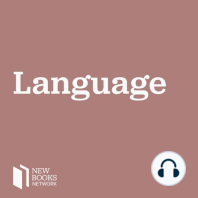59 min listen

Vershawn Young et al., “Other People’s English” (Teacher’s College Press, 2013)
Vershawn Young et al., “Other People’s English” (Teacher’s College Press, 2013)
ratings:
Length:
54 minutes
Released:
Apr 15, 2014
Format:
Podcast episode
Description
In linguistics, we all happily and glibly affirm that there is no “better” or “worse” among languages (or dialects, or varieties), although we freely admit that people have irrational prejudices about them. But what do we do about those prejudices? And what do we think the speakers of low-status varieties of language should do to overcome them? Take the case of African American English. An influential approach, code-switching, advises teachers to help their AAE-speaking students to identify the systematic differences between their variety and the prestige variety (“Standard English”), and eventually to be able to switch effectively between both varieties according to the circumstances. However, although code-switching seems to promote communicative effectiveness, Vershawn Young and colleagues argue that that approach is inherently problematic. By effectively labelling AAE as inappropriate for public contexts, code-switching runs the risk of promoting and reinforcing society’s prejudices against the language (and indeed its speakers). Young and colleagues offer an alternative vision for the multilingual classroom, which they refer to as “code-meshing”, a process by which multiple varieties can sit side-by-side in a speaker’s communicative repertoire. Their book, Other People’s English: Code-Meshing, Code-Switching, and African American Literacy (Teacher’s College Press, 2013), explores this concept in theoretical and practical detail, discussing the rationale for encouraging code-meshing, the effect of this on communicative abilities, and some of the ways in which code-switching can be and has been implemented in real-life teaching. In this interview, we discuss the effect of code-switching on the speaker’s identity, the ubiquity of code-meshing across a range of actual discourse contexts, and some of the challenges that code-meshing might present in the classroom. And we consider why Barack Obama isn’t criticised for code-meshing but Michelle Obama is.
Learn more about your ad choices. Visit megaphone.fm/adchoices
Support our show by becoming a premium member! https://newbooksnetwork.supportingcast.fm/language
Learn more about your ad choices. Visit megaphone.fm/adchoices
Support our show by becoming a premium member! https://newbooksnetwork.supportingcast.fm/language
Released:
Apr 15, 2014
Format:
Podcast episode
Titles in the series (100)
Joshua Miller, “Accented America: The Cultural Politics of Multilingual Modernism” (Oxford UP, 2011): Recent political debates around language have often been controversial, sometimes poorly informed, and usually unedifying. It’s striking to consider that such debates have, at least in the USA, been current for more than 100 years; and perhaps surprisi... by New Books in Language